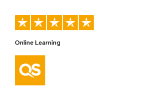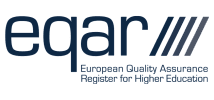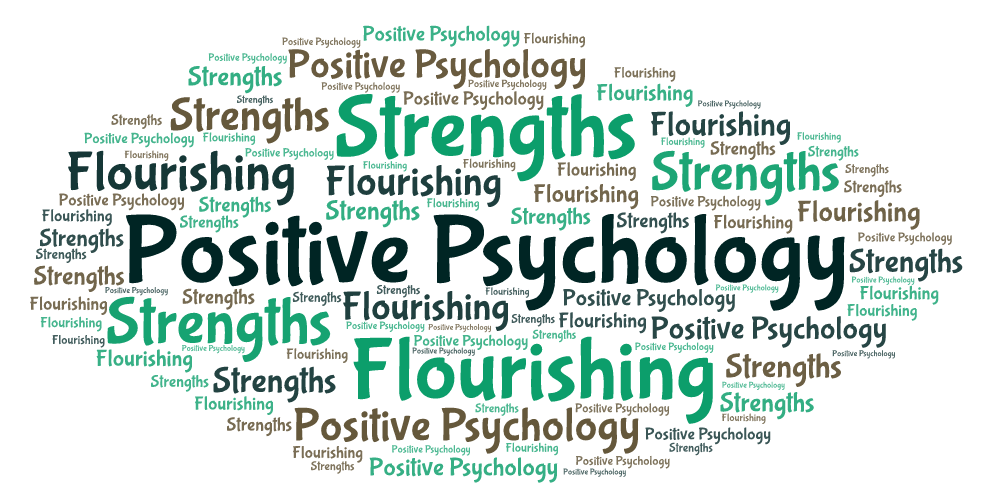
Positive Psychology
The Positive Psychology course offers students an exploration into the science of well-being and human flourishing. Drawing on research from psychology, neuroscience, and related fields, this course examines factors that contribute to a fulfilling and meaningful life. Through theoretical discussions, practical exercises, and real-world applications, students will learn how to cultivate positive emotions, strengths, and relationships to enhance overall happiness and life satisfaction.
Overview

Positive Psychology
Course Learning Outcomes (CLOs)
Course Learning Outcomes (CLOs) typically include:
Understand the Foundations: Gain knowledge of the historical background, key concepts, and theories within Positive Psychology.
Analyze Positive Traits: Evaluate various positive traits such as strengths, virtues, and talents, and their impact on personal well-being.
Apply Interventions: Learn practical interventions and techniques to enhance happiness, resilience, and overall psychological well-being.
Critically Reflect: Develop critical thinking skills to assess the strengths and limitations of Positive Psychology as a scientific discipline.
Student Learning Outcomes (SLOs) are the specific goals for students, such as:
Identify Positive Emotions: Students will recognize and articulate different positive emotions and their role in daily life.
Demonstrate Application: Apply positive psychology principles to real-life situations, demonstrating understanding of concepts through case studies or practical exercises.
Evaluate Research: Analyze and critique research studies in Positive Psychology, demonstrating the ability to assess methodologies and findings.
Enhance Personal Well-being: Develop personal strategies for improving well-being based on positive psychology principles learned in the course.

Benefits
With AI, the world is your oyster! It is an emerging field, rapidly growing, ever evolving and watched with a keen eye by industries and markets globally. There are many benefits to an education in AI:
In demand Career
With a Bachelor in artificial intelligence you are equipped with in-demand skills in the rapidly growing field of AI. Knowledge of developing AI systems, data analysis and AI techniques makes you valuable across industries, right from healthcare, finance, tech and more. This degree prepares you for career that has multiple options for diversification. AI professionals include AI engineers, data scientists, machine learning specialists, AI consultants, researchers and more. AI is transformative technology that is revolutionising the world. With an education background in AI, you are set up in an in-demand career field with an exciting future ahead!
Innovation and advancement
Applied AI is all about finding solutions and using AI systems to make life simpler. Applied AI draws on its solid foundation in Computer Science to analyse and provide solutions for real world challenges. You are prepared to address complex problems and contribute meaningfully in domains like healthcare diagnostics, fraud detection, autonomous vehicles, personalised recommendations and more. Being able to apply AI techniques for solving tasks makes for an extremely rewarding and impactful job role!
Solving real world problems
AI aims to constantly bridge the gap between natural intelligence and machine learning - it is a field of cutting edge research, innovation and advancing technology. This makes it ever evolving, with new algorithms, models and techniques being developed. By studying AI at an undergraduate level, you gain a strong foundation in AI fundamentals that help you better understand the latest advancements. You step into a career that empowers you to push the boundaries of AI, contribute to research and development and drive innovation in the field.
100% International
Study at your own pace from anywhere in the world
Recommended by 96% of our graduates
According to our latest alumni survey
50,000+ students
enrolled in Germany’s largest university
Study contents
Contents
Module 1: Introduction to Positive Psychology
Definition and history of positive psychology
Key concepts: positive emotions, well-being, happiness, flow, gratitude
Overview of the field and its applications
Module 2: Positive Emotions
The role of positive emotions in well-being
The broaden-and-build theory of positive emotions
How to cultivate positive emotions (e.g. gratitude, joy, love)
Examples of positive emotional experiences (e.g. flow, awe)
Module 3: Positive Personality Traits
The Big Five personality traits and their relationship to well-being
Character strengths and virtues (e.g. gratitude, compassion, curiosity)
How to identify and develop positive personality traits
Module 4: Positive Relationships
The importance of social connections for well-being
Types of social relationships (e.g. friendships, romantic relationships)
Skills for building and maintaining positive relationships (e.g. active listening, empathy)
Module 5: Positive Thinking and Optimism
The role of optimism in well-being
Techniques for reframing negative thoughts and cultivating optimism
The impact of negative thinking on mental and physical health
Module 6: Positive Institutions
The role of institutions (e.g. schools, workplaces) in promoting well-being
How to create positive environments (e.g. fostering a sense of community, promoting employee engagement)
Module 7: Positive Education
The role of education in promoting well-being
Strategies for teaching positive psychology in educational settings
Case studies of successful positive education programs
Module 8: Positive Interventions
Effective interventions for promoting well-being (e.g. gratitude practices, mindfulness)
How to design and implement effective interventions
Case studies of successful interventions
Module 9: Applications of Positive Psychology
Applications in mental health settings (e.g. therapy, counseling)
Applications in organizational settings (e.g. employee engagement, leadership development)
Applications in educational settings (e.g. teacher training, student well-being)
Module 10: Research Methods in Positive Psychology
Research design and methodology in positive psychology
Measurement tools and assessment methods
Statistical analysis and data interpretation
Admission
Admission Criteria
Academic Requirements:
High School Diploma: A high school diploma or equivalent is required for admission to most undergraduate programs in positive psychology.
GPA: A minimum GPA of 3.0 or higher is typically required for admission to most colleges and universities.
Standardized Tests: Some programs may require standardized test scores such as the SAT or ACT, while others may not. Check with the specific program you're interested in for their requirements.
Additional Requirements:
Letters of Recommendation: One or two letters of recommendation from academic or professional mentors can help strengthen your application.
Personal Statement: A personal statement or essay outlining your motivation for pursuing a degree in positive psychology can be an important part of the application process.
Extracurricular Activities: Participation in extracurricular activities, volunteer work, or research projects related to positive psychology can be beneficial in demonstrating your interest and commitment to the field.
Interviews: Some programs may require an interview as part of the application process.
Program-Specific Requirements:
Major-Specific Prerequisites: Some programs may require specific courses or prerequisites in subjects like psychology, biology, or sociology.
Research Experience: Some programs may require research experience or a research project as part of the application process.
Tips for Applying:
Research Programs: Research different programs and their requirements to find the best fit for your interests and goals.
Tailor Your Application: Customize your application materials to highlight your relevant skills, experiences, and interests in positive psychology.
Showcase Your Passion: Demonstrate your passion for positive psychology through your personal statement, letters of recommendation, and other application materials.
Some notable programs in positive psychology include:
University of Pennsylvania's Master's Program in Positive Psychology
University of California, Berkeley's Master's Program in Positive Psychology
Harvard University's Graduate Program in Psychology (with a focus on positive psychology)
University of Wisconsin-Madison's Ph.D. Program in Counseling Psychology (with a focus on positive psychology)
Careers
Career Paths
Positive Psychology Coach: Help individuals, teams, or organizations develop positive habits, strengths, and well-being through coaching.
Researcher: Conduct studies and experiments to understand the science behind positive psychology, publishing findings in academic journals and presenting at conferences.
Therapist/Counselor: Use evidence-based practices to help clients overcome mental health challenges and cultivate resilience, happiness, and fulfillment.
Wellness Program Director: Develop and implement wellness programs for organizations, focusing on employee well-being, mindfulness, and positivity.
Positive Education Specialist: Create and teach courses on positive psychology, character strengths, and well-being in educational settings (schools, universities).
Mental Health Consultant: Provide consulting services to organizations on mental health initiatives, employee well-being, and workplace culture.
Corporate Wellness Specialist: Design and implement wellness programs for companies, focusing on employee engagement, productivity, and job satisfaction.
Positive Psychology Practitioner: Work with individuals or groups to identify and develop their strengths, resilience, and positive emotions.
Mindfulness/Meditation Teacher: Teach mindfulness and meditation practices to individuals or groups, promoting mental well-being and stress reduction.
Positive Organizational Development Specialist: Help organizations create a positive culture by implementing strategies that promote employee engagement, trust, and well-being.
Wellness Writer/Journalist: Write articles, blog posts, or books on positive psychology topics, such as well-being, mindfulness, and happiness.
Positive Psychology Professor/Teacher: Teach positive psychology courses at the university level or develop online courses on positive psychology topics.
Coaching Certification Program Developer: Create certification programs for coaches who want to specialize in positive psychology coaching.
Positive Psychology Podcast Host/Producer: Create a podcast that explores positive psychology topics, interviews experts, and shares inspiring stories.
Non-Profit Professional: Work for organizations that focus on promoting well-being, resilience, and positivity in communities.
Student reviews
Coming Soon.
Tuition fees
All our study programmes include the following benefits
- Teaching and study material
- Marking of your end-of-module exams
- Monthly live and recorded tutorials
- Use of the online campus
- Individual study coaching
- Online exams
- Career coaching
- Learn English for free
Our global recognition

IU is recognised by WES Canada and U.S., which means your degree can be converted to points in the local system for purposes of immigration, work, or studies.
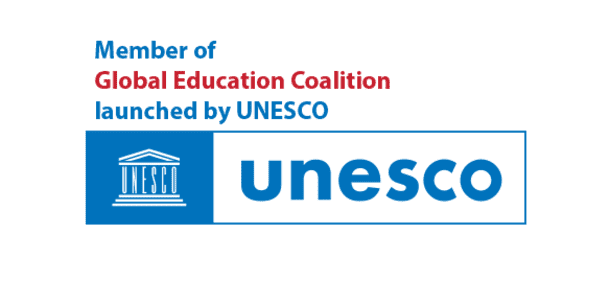
As the first EU institution in UNESCO's Global Education Coalition, IU is committed to ensuring accessible quality education to students in crisis worldwide through free online micro-credentials.
Our company partners
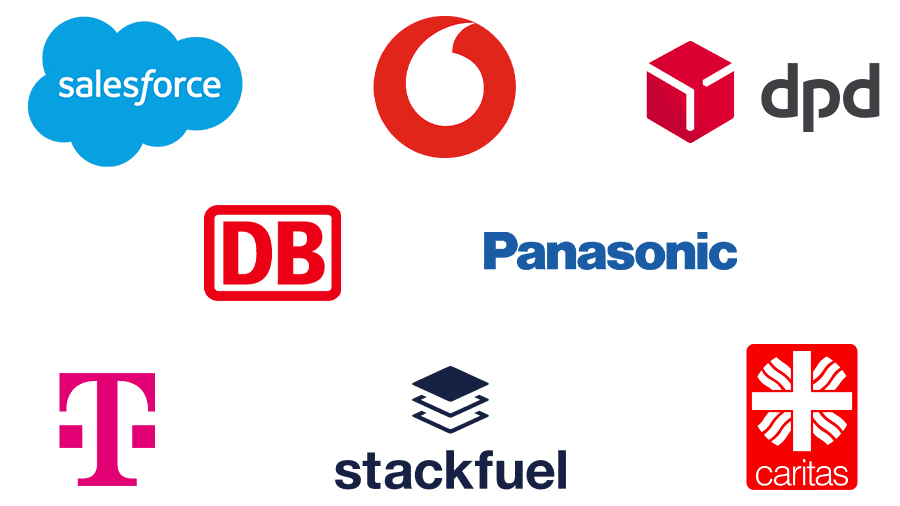
For over 20 years, IU has established partnerships with leading global companies. This offers you the chance to gain firsthand experience through internships and projects and allow us to adapt our learning content to the ever-evolving needs of the labour market. You'll benefit from an education designed to bridge the gap between theory and real-world practice, ensuring your readiness for your future career.
Recognition
Recognition of previous achievements
Have you already completed a training course, studied at a university or gained work experience? Have you completed a course or a learning path through EPIBM LinkedIn Learning, and earned a certificate? Then you have the opportunity to get your previous achievements recognised, and complete your studies at EPIBM sooner.

Save time:
Skip individual modules or whole semesters!
Even before you apply for a study programme, we’ll gladly check whether we can take your previous achievements into account: 100% online, no strings attached. Simply fill in our recognition application form, which you can find under the content section of each study programme's webpage, and upload it via our upload section. You can also e-mail it to us, or send it via post.
Send an email to [email protected] to find out which previous achievements you can get recognised. You can get your previous achievements recognised during your studies.
Recognition files
Autonomous vehicles developer
With AI, the world is your oyster! It is an emerging field, rapidly growing, ever evolving and watched with a keen eye by industries and markets globally. There are many benefits to an education in AI:
That’s why after graduating, you’ll be able to apply your professional skills and knowledge, and work for development teams at any sector you find appealing.


Augmented reality (AR/VR) developer
Virtual (or augmented) reality isn’t all just fun and games, as great and enjoyable as that aspect is. It can also be used for groundbreaking social and psychological research, defensive purposes and therapy.
With an Applied Artificial Intelligence degree from IU University of Applied Sciences, you can take part in this vital field of technological development, and work on a wide variety of interesting projects.
Change what the world thinks about the possibilities that AI offers, and make a real difference in people’s lives, while enjoying every step of the process.
F.A.Q
Frequently Asked Questions
You might also be interested in these study programmes
Accredited and certified







